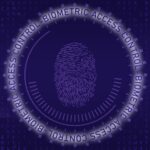 By: Gerald L. Maatman, Jr., Jennifer A. Riley, and Alex W. Karasik
By: Gerald L. Maatman, Jr., Jennifer A. Riley, and Alex W. Karasik
Duane Morris Synopsis: In Rogers v. BNSF Railway Co., Case No. 19-CV-03083 (N.D. Ill.), the first federal court jury trial in a case brought under the novel Illinois Biometric Information Privacy Act (“BIPA”), the plaintiffs secured a verdict in favor of the class of 45,000 workers against Defendant BNSF. After a week-long trial in the U.S. District Court for the Northern District of Illinois in Chicago, the jury found that BNSF recklessly or intentionally violated the law 45,600 times, based on the defense expert’s estimated number of drivers who had their fingerprints collected. The Court thereafter entered a judgment against BNSF for $228 million.
This landmark verdict showcases the potentially devastating impact of the BIPA statute on unwary businesses across the state of Illinois that collect, use, or store biometric information.
Case Background
Plaintiff, a truck driver, filed a class action lawsuit alleging that BNSF unlawfully required drivers entering the Company’s facilities to provide their biometric information through a fingerprint scanner. He claimed that BNSF collected the drivers’ fingerprints without first obtaining informed written consent or providing a written policy that complied with the BIPA and therefore violated sections 15(a) and (b) of the BIPA. BNSF argued that it did not operate the biometric equipment and instead sought to shift blame to a third-party vendor who operated the biometric equipment that collected drivers’ fingerprints.
The case proceeded before a jury in federal court in Chicago. The proceeding was closely watched, as it represented the very first time any class action had gone to a full trial with claims under the BIPA
The trial lasted five days. However, the jurors deliberated for just over an hour. The jurors were asked to: (1) indicate on the verdict form whether they sided with Plaintiff, and (2) if so, indicate how many times BNSF violated the BIPA negligently or how many times the company violated the statute recklessly or intentionally.
The BIPA provides for damages of $1,000 for every negligent violation, and up to $5,000 in liquidated damages for every willful or reckless violation. At the conclusion of the trial, the jury found that BNSF recklessly or intentionally violated the law 45,600 times. Accordingly, the Court entered a judgment against BNSF in the amount of $5,000 per violation, for a total amount of $228 million.
Implications For Employers
This verdict undoubtedly will embolden the plaintiffs’ class action bar and equally serve as an eye opener for businesses in Illinois. In the short term, companies can expect an uptick in the number of BIPA class actions filed by the plaintiffs’ bar. While it is almost certain that the verdict will be challenged in post-trial motions and in an appeal, companies can expect that plaintiffs’ lawyers will increase their settlement demands in other BIPA class actions.
The BIPA vastly increases the importance of adopting a strategic compliance plan for businesses that operate in Illinois. It is more important than ever for companies to implement proper mechanisms and consent forms to comply with the BIPA.
